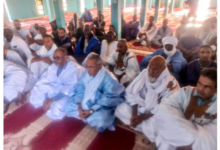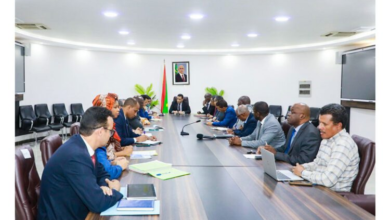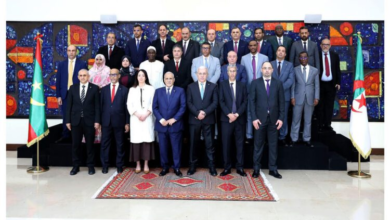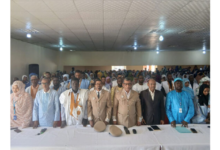Approval of Three Draft Laws to Enhance Rural Resilience, Develop Vocational Training, and Promote Youth Employment in Mauritania

The National Assembly, in its public session held this Tuesday evening under the chairmanship of the Assembly’s Vice President Mr. Mohamed Fih Al-Baraka Abah, approved three draft laws aimed at strengthening rural resilience in Mauritania, improving vocational training, and promoting youth employment.
The first draft law authorizes the ratification of a loan agreement signed by Mauritania with the African Development Fund on May 28, 2025, to finance a project to enhance rural resilience through the management and development of water resources for domestic, productive, and environmental purposes.
The second draft law grants approval for a loan agreement between Mauritania and the Islamic Development Bank dated May 21, 2025, dedicated to financing a project to improve vocational training and youth employment.
Meanwhile, the third draft law allows ratification of a framework agreement for financing through deferred payment (sale on credit), signed on the same date with the Islamic Development Bank, also aimed at funding the project to improve vocational training and youth employment.
His Excellency the Minister of Economy and Finance, Mr. Sid Ahmed Abouh, explained that the first draft law aligns with Mauritania’s sustainable development goals, especially given the limited access to safe drinking water services, as water and sanitation are national priorities. He added that President Mohamed Ould Cheikh El Ghazouani’s program focuses on enhancing the effectiveness of existing infrastructure and expanding the national water network. The project falls within the four pillars of the National Strategy for Sustainable Access to Water and Sanitation by 2030: exploring and preserving water resources, doubling access rates to drinking water, improving sanitation and hygiene, and strengthening sector governance. The loan amount is approximately 700 million new ouguiyas, repayable over 30 years, including a 5-year grace period, with a commitment fee of 0.75%.
Regarding the second draft law, the minister stated that its cost amounts to 43.5 million euros, financed by two loans: one from the Islamic Development Bank worth 4.78 million euros and another from the Islamic Solidarity Fund for the same amount. The first loan is repayable over 25 years, including a 7-year grace period, with a service fee not exceeding 1.5% annually. The second loan follows the same repayment terms with a 0.5% annual service fee. The minister emphasized that the vocational training sector is undergoing significant transformation in terms of programs, infrastructure, and new specializations, stressing the government’s commitment to ensuring that these loans are used effectively to achieve the project’s objectives and meet the needs of youth and the labor market.
As for the third draft law, it concerns a financing agreement under a deferred payment sale format valued at 43.5 million euros, including 26.21 million euros from the Islamic Development Bank, repayable over 20 years with a 4-year grace period and a profit margin of 1.9% annually. The minister explained that this project will support efforts to improve access to vocational training and contribute to achieving the National Vocational Training Strategy 2023-2030 through establishing institutions that supply the economic sectors with the necessary competencies.
Members of Parliament emphasized the importance of these projects in supporting national development, affirming that developing vocational training is a key pillar to absorb unemployment. They called for launching comprehensive national campaigns to encourage enrollment in training centers, especially in fields with severe labor market shortages, and urged the government to provide all necessary conditions to ensure optimal implementation of the projects and achieve their intended goals.








